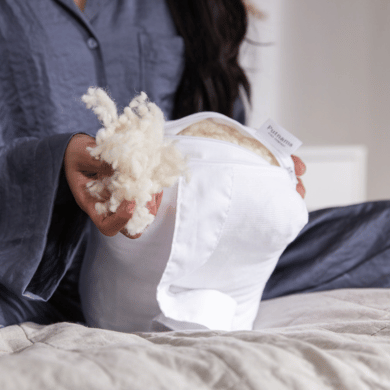
Google’s 12 Most Popular Questions About Sleep, Answered.
In our fast-paced world, sleep has become a topic of both mystery and necessity. Many turn to Google to find answers to their most pressing sleep questions. Here, we break down the top 12 most popular sleep-related questions people are asking online and provide insightful answers to each.
1. How Much Sleep Do I Need?
The amount of sleep needed varies by age and individual needs. The National Sleep Foundation recommends:
- Adults (18-64 years): 7-9 hours
- Older adults (65+ years): 7-8 hours
- Teenagers: 8-10 hours
- School-aged children: 9-11 hours
Remember, quality of sleep is just as important as quantity.
2. How Can I Stop Snoring?
Snoring can disrupt sleep for both you and your partner. Fortunately, there are several strategies you can try to reduce or eliminate snoring. Here are some effective tips:
- Change Your Sleep Position
- Lose Weight if Needed
- Avoid Alcohol and Sedatives
- Maintain Good Sleep Hygiene
- Elevate Your Head
- Consider Anti-Snoring Devices
3. Why Can’t I Sleep?
Insomnia can be caused by various factors including stress, anxiety, poor sleep habits, medical conditions, medications, and lifestyle choices. Identifying the root cause is essential for finding an effective solution. Consider consulting with a healthcare provider if sleeplessness persists.
4. What Is Sleep Apnoea?
Sleep apnoea is a serious sleep disorder where breathing repeatedly stops and starts. Symptoms include loud snoring, gasping for air during sleep, and daytime fatigue. Treatment options range from lifestyle changes and devices like CPAP machines to surgical procedures.
5. How Do I Get Back to Sleep in the Middle of the Night?
Waking up in the middle of the night can be frustrating, but there are several strategies you can try to get back to sleep quickly and peacefully. Here are some tips:
- Stay calm
- Avoid looking at the clock
- Practice relaxation techniques
- Maintain a cool, comfortable environment
- Use white noise or nature sounds
- Read or listen to soothing music
- Try the Military Sleep method or the 10,3,2,1,0 sleep method
6. How Can I Fall Asleep Faster?
To fall asleep more quickly, try these tips:
- Establish a regular sleep schedule
- Create a bedtime routine
- Limit screen time before bed
- Make your sleep environment comfortable and dark
- Avoid caffeine and heavy meals close to bedtime
7. What Are the Stages of Sleep?
Sleep is divided into two main types: REM (Rapid Eye Movement) and non-REM sleep, which includes three stages:
- Stage 1: Light sleep, transition between wakefulness and sleep
- Stage 2: Deep sleep, body repairs and grows tissue, builds bone and muscle
- Stage 3: Deeper sleep, body temperature drops, heart rate slows
REM sleep is when dreaming occurs and is important for cognitive functions.
8. Can Naps Improve My Health?
Yes, naps can be beneficial if done correctly. A 20-30 minute nap can boost alertness and performance without causing grogginess or interfering with nighttime sleep.
Longer naps can be restorative but may lead to sleep inertia.
9. Is It Bad to Sleep With My Phone?
Using your phone before bed can interfere with sleep due to blue light exposure, which suppresses melatonin production, the hormone that regulates sleep. To promote better sleep, try to avoid screens at least an hour before bedtime.
10. What Foods Help You Sleep?
Certain foods can promote better sleep, including:
- Almonds and walnuts: Rich in melatonin, magnesium and zinc
- Kiwi: Contains serotonin, folate, vitamins C & E and potassium
- Chamomile tea: Has calming effects
- Fatty fish: High in omega-3 and vitamin D
- Malted Milk: Rich in B & D vitamins, phosphorus, zinc and magnesium
Avoiding caffeine, alcohol, and heavy meals near bedtime can also help improve sleep quality.
11. How Does Exercise Affect Sleep?
Regular physical activity can help you fall asleep faster and enjoy deeper sleep. However, intense exercise close to bedtime may have the opposite effect for some individuals.
Aim to finish exercising at least a few hours before going to bed.
12. What Is a Sleep Diary?
A sleep diary is a tool used to track your sleep patterns, habits, and any factors that might be affecting your sleep. It typically includes information about bedtime, wake time, duration of sleep, quality of sleep, and other relevant details. Keeping a sleep diary can help identify trends and issues that need to be addressed.
Understanding and improving your sleep can have a profound impact on your overall health and well-being. By addressing these common questions and concerns, you can take meaningful steps towards better sleep and a healthier life.
Do you have any other sleep-related questions you'd like answered?
















Leave a comment